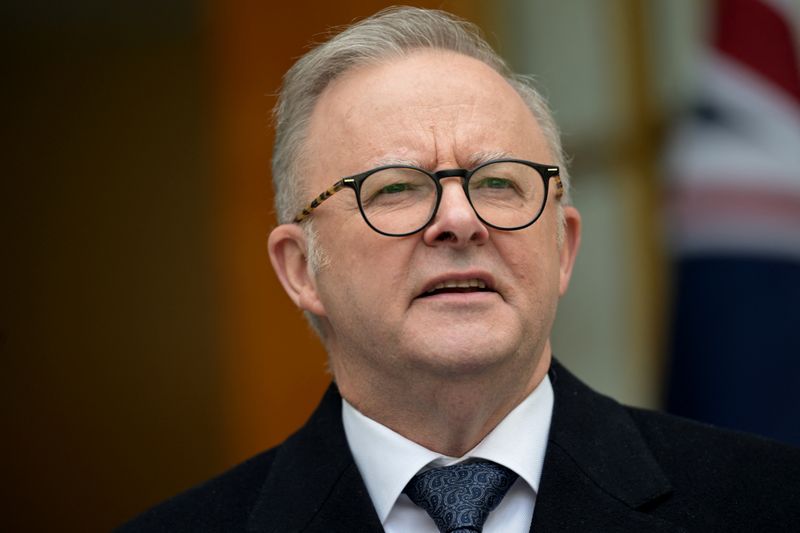SYDNEY (Reuters) - Australia's Prime Minister Anthony Albanese said on Saturday that he is confident the AUKUS defence pact will be supported by any future U.S. administration, after a meeting with President Joe Biden that covered bilateral defence cooperation in the Indo-Pacific.
Biden is set to hand over the presidency after a Nov. 5 election that will deliver the White House to his vice president, Kamala Harris, or Republican Donald Trump, who has vowed a confrontational approach with China and voiced skepticism about traditional U.S. alliances. The U.S. is Australia's closest security ally.
"There is no question in my mind that AUKUS will continue to have the support of any future U.S. administration," Albanese said in a televised media conference from the U.S. city of Philadelphia.
AUKUS, formed in 2021 to address shared worries about China's growing power, is designed to allow Australia to acquire nuclear-powered attack submarines and other advanced weapons such as hypersonic missiles.
Albanese is in the U.S for the Quad Leaders Summit, where the leaders are expected to speak about conflict between Beijing and its neighbors in the South China Sea who have repeatedly clashed over disputed territory, U.S. officials told Reuters.
Albanese's office said in a statement on Saturday that ahead of the summit in Delaware he met with Biden and discussed bilateral cooperation across defence and security, including in the Indo-Pacific.
Biden welcomed Albanese at his home for the meeting, the first in a series of one-on-one meetings closed to the media.

The two leaders "reaffirmed their commitment to the AUKUS partnership and noted the ongoing and bipartisan support for AUKUS across the aliance," the statement from Albanese's office said.
"They welcomed the significant progress that has been made this year, including in building Australia's capabilities to steward and operate its own fleet of conventionally armed, nuclear-powered submarines from the early 2030s".